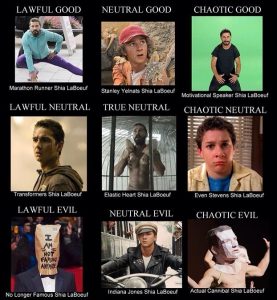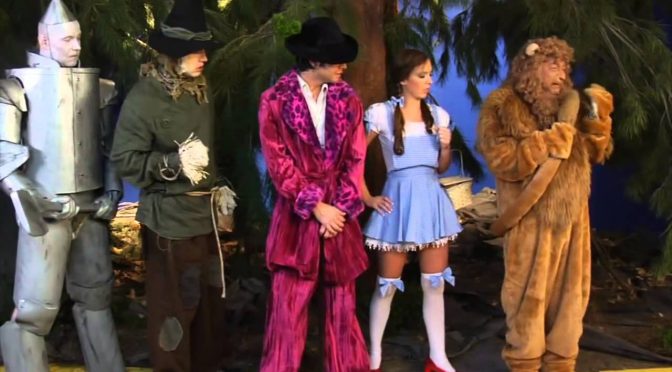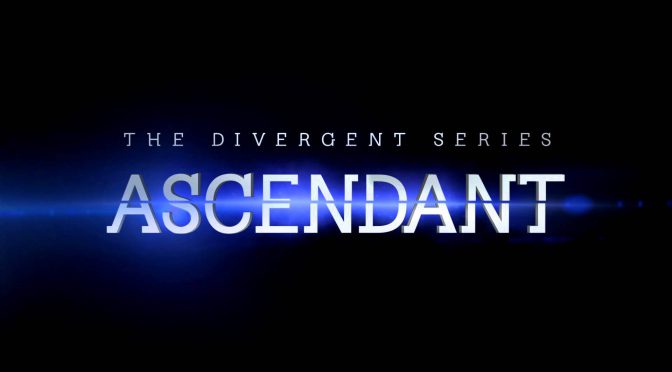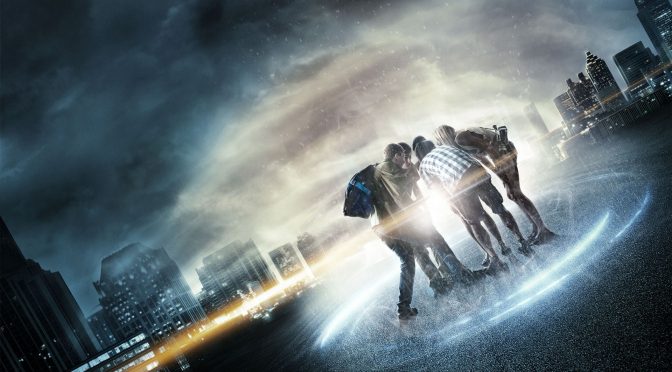(To ensure there’s no confusion here: I am not a lawyer, I am a writer who has an interest in this subject because I would like to not be sued or ripped off. Noble motivations, I assure you.)
Last month I mentioned something about an upcoming Star Trek production and it stirred a lot of debate about the legality of fan films. At the time, I wasn’t even trying to claim anything about legality because, frankly, that can’t be determined until after the lawsuit’s long over. And, while people are incredibly passionate about that debate, I’m not actually so angry that I could go on talking about the production for much longer. It’s not that I don’t care, I do, but the emotion that would best describe my reaction would be “disappointment”.
Still, there is something about the topic that I am fairly passionate about. Long time readers could be confused how I could come out so adamantly against the likes of Shia LaBeouf for plagiarism and copyright infringement but defend fan-works like Axanar so often. The two points of view may be seen as contradictory in the eyes of some, but they’re all part of a general philosophy I have regarding copyright. Basically, thieves should be treated as such, but fan works need not necessarily be considered thieves.

I believe in a system that protects creators, doesn’t naturally favor the wealthy, and provides some limited protection for fan productions as creators in their own right. The way I’ve seen it for a long time, that’s not quite what we have. Instead, our system tends to bend to the whims of whoever can afford the best legal team. And, because of that, I’m often disappointed in general at the way the system’s carried out. To put it another way: guys like Shia LaBeouf get away with it because the system we have now lets them while even the most innocent of fan productions could be shut down at a moment’s notice. Would I consider Axanar as “the most innocent”? No, but that’s why I’m more disappointed than angry.
So it’s not that I want to tear down the copyright system, far from it, creators like me need more protection from the likes of LaBeouf. However, when I look at fan productions I don’t see the enemy so much as I see people who are either trying to get started as creators or trying to show their love for the work of another creator. Plagiarism and copyright infringement are matters of theft, but I don’t feel most fan productions should fall in that category and right now the law basically says they do.
What I’d want is clear and common sense legislation to guide fan works in a way that won’t hurt the original creators. Many believe that legislation already exists and mention repeatedly that’s the whole point of “Fair Use”. But, as much as people would want to believe Fair Use provides that common sense protection for fan works, it really isn’t as clear as people would think it is. The fact of the matter is, even seasoned professionals often overlook the fact that Fair Use, like most of copyright law, is incredibly subjective and, frankly, has lost some of its power in the last few years.
Unless, of course, you can afford to defend it… Continue reading Fair Use: Parody, Porn, and Games (Oh My)



















